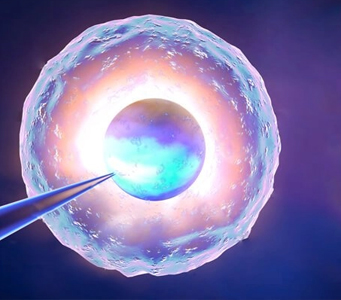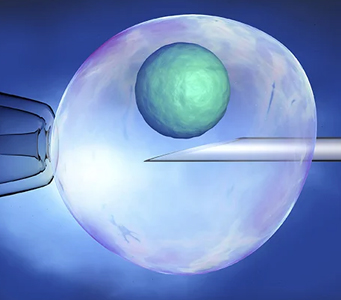Hatching is a natural process that is performed by an embryo in order to get attached to the uterus lining for pregnancy.
When an embryo develops it surrounds itself by an outer protective layer like an eggshell called Zona Pellucida. After reaching the mother’s womb, the embryo has to break the outer layer and latch to the womb of the mother.
This is a natural process and the pregnancy is achieved only when the embryo hatches and latches to the mother’s womb.
Sometimes the outer layer of the embryo is too thick that it cannot break and latch itself to the womb.
It is when Assisted Hatching comes into play, during this process, a crack is made in the outer layer of the embryo with a laser. Later it is implanted in the mother’s womb during an IVF treatment.
Sometimes the outer layer of the embryo is too thick that it cannot break and latch itself to the womb.
It is when Assisted Hatching comes into play, during this process, a crack is made in the outer layer of the embryo with a laser. Later it is implanted in the mother’s womb during an IVF treatment.
This process helps an embryo to hatch and attach to a mother’s womb which results in a successful pregnancy.
Laser-assisted hatching success rates are higher in leading to a healthy pregnancy, therefore, fertility doctors at our Laser-Assisted Hatching Clinic in Delhi prefer such treatments before going for a complete IVF.
No, not everyone needs this assisted hatching procedure. It is beneficial for:
No, precise laser-assisted hatching has no adverse effects on the embryo or the mother. You have to just look out for the best embryologist and fertility specialists who can help you with a smooth process.



